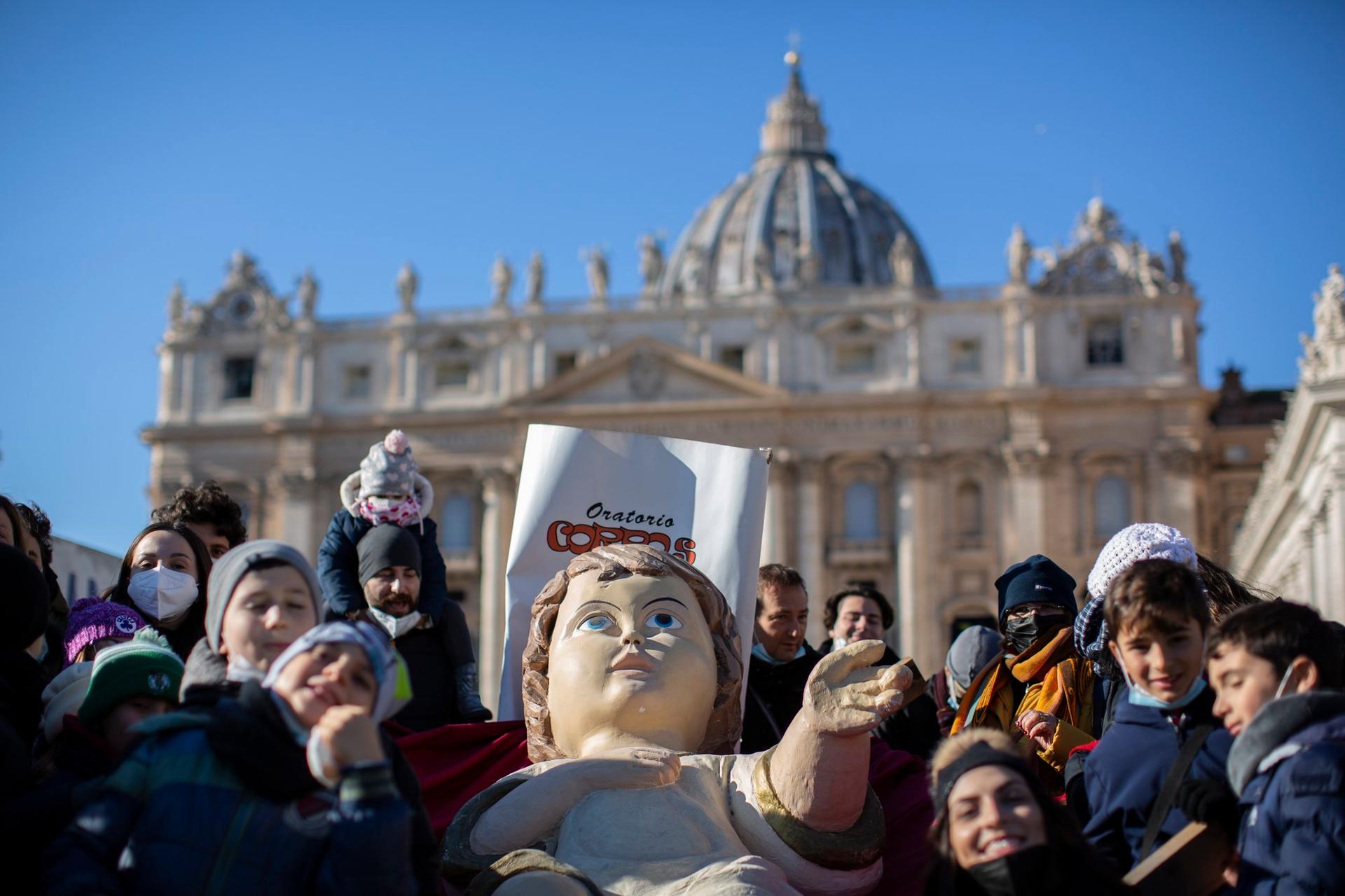ROME — With Christmas just over a week away, Christians should prepare for Jesus’ birth by serving those in need rather than focusing on what awaits them under the Christmas tree, Pope Francis said.
“We are so busy with all the preparations, with gifts and things that pass,” the pope said Dec. 12 during his Sunday Angelus address. “But let’s ask ourselves what we should do for Jesus and for others! What should we do?”
Many children along with their families came to St. Peter’s Square with their baby Jesus figurines for a traditional blessing by the pope.
Assuring them that he would bless their statues after praying the Angelus, Pope Francis greeted the little ones and asked them to take “my Christmas greetings to your grandparents and all your dear ones.”
In his main address, the pope reflected on the Sunday Gospel reading from St. Luke which recalled the crowds of people who, after being moved by St. John the Baptist’s preaching, asked him, “What should we do?”
Their question “does not stem from a sense of duty” but from their hearts being “touched by the Lord,” and their being enthusiastic for his coming.
Just like the preparations people make to welcome a guest to their home by cleaning and preparing “the best dinner possible,” Christians must do “the same with the Lord,” he said.
St. Luke’s Gospel, the pope added, also encourages one to ask, “What should I do with my life? What am I called to? What will I become?”
“By suggesting this question, the Gospel reminds us of something important: Life has a task for us. Life is not meaningless; it is not left up to chance. No! It is a gift the Lord grants us, saying to us: Discover who you are, and work hard to make the dream that is your life come true!”
The pope encouraged Christians to prepare for Christmas by continuously asking God what should they do for themselves and others in order to contribute to the good of the church and society.
St. John the Baptist’s answers, he said, responded to each individual in a way that fit his or her situation in life, a reminder from the Gospel that “life is incarnated” in concrete situations.
“Faith is not an abstract theory, a generalized theory; no!” he said. “Faith touches us personally and transforms each of our lives. Let us think about the concreteness of our faith. Is my faith abstract, something abstract or concrete? Does it lead me to serve others, to help out?”
Pope Francis said there are several ways people can serve others during Advent, including by doing “something concrete, even if it is small” to help others,” especially by visiting the lonely, the elderly, the sick or someone in need.
Then the pope added to the list: “Maybe I need to ask forgiveness, grant forgiveness, clarify a situation, pay a debt. Perhaps I have neglected prayer and after so much time has elapsed, it’s time to ask the Lord for forgiveness.”
“Brothers and sisters,” he said, “let’s find something concrete and do it!”













